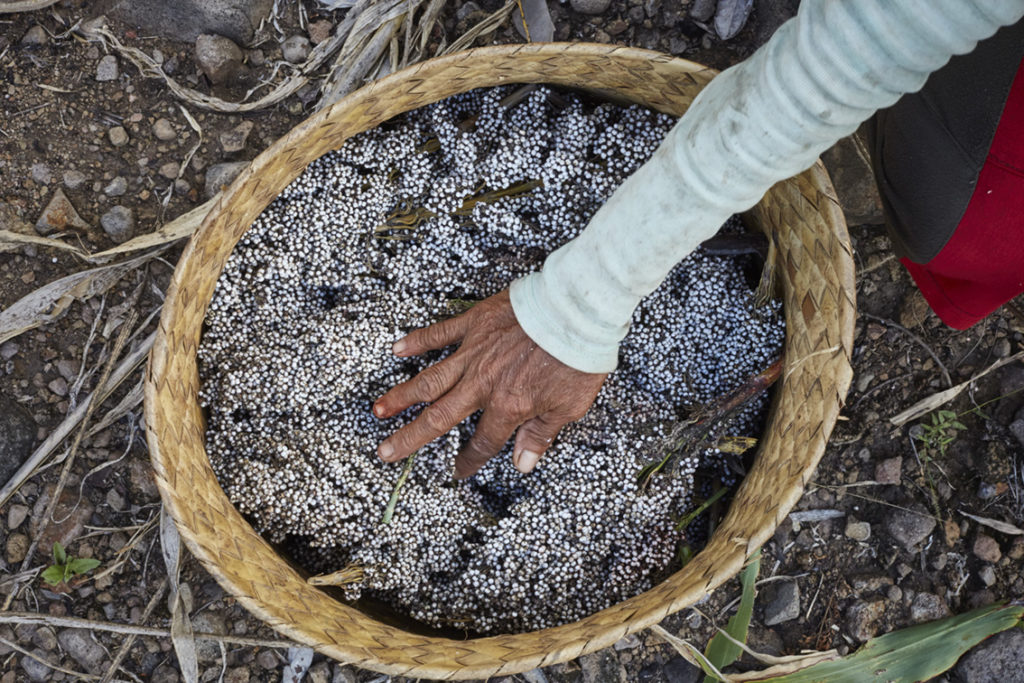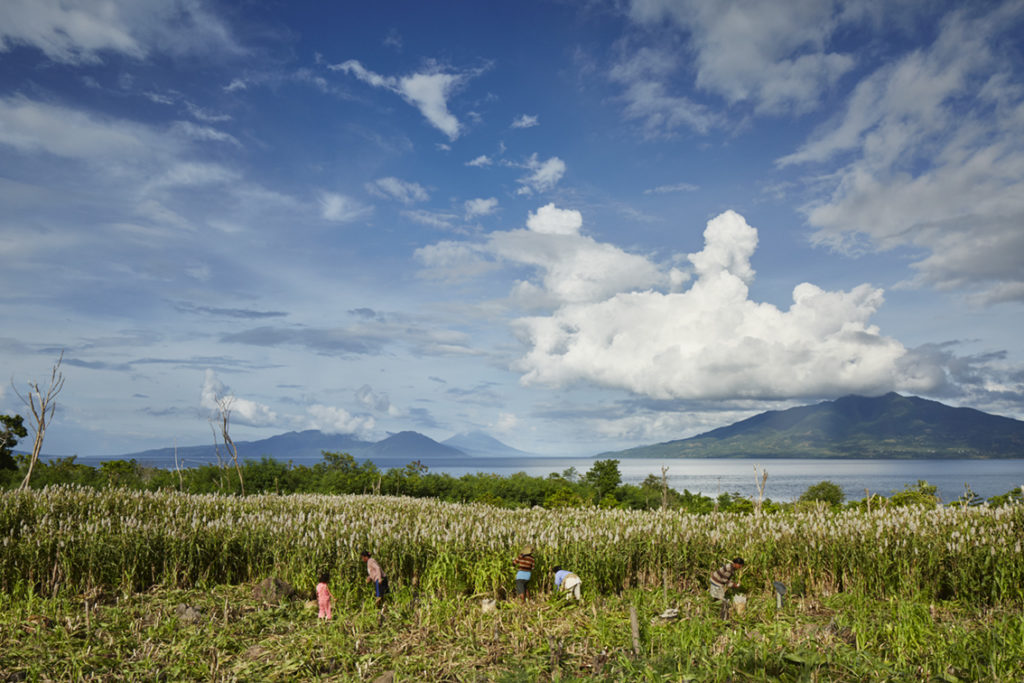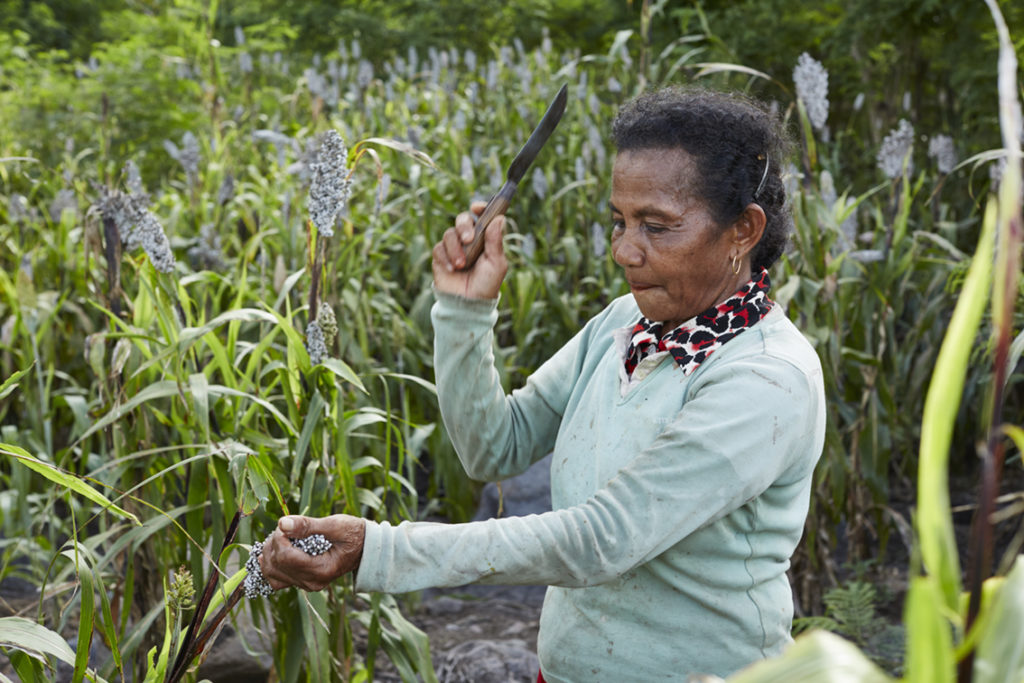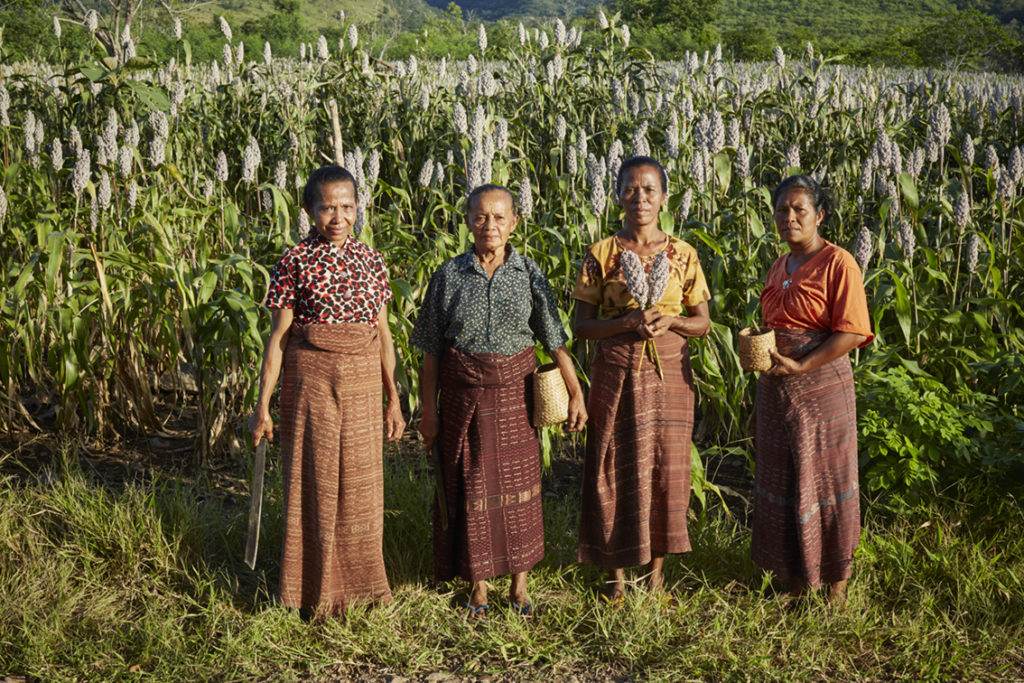In Indonesia, community leader Maria Loretha spent months traveling around the remote villages of East Flores and talking to the elders before she eventually found the native sorghum seed varieties that used to grow prolifically in the region. The ancient crop – now known in the Global North for its superfood qualities – had all but died out on the volcanic island of Flores after successive governments encouraged farmers to grow commercial white rice varieties instead, dubbing sorghum an inferior crop that should be fed to animals.

The difficulty for the communities of East Flores was that the changing weather patterns left them with little or no rain and their volcanic landscape didn’t support the same wet-field based agriculture that allowed rice and maize to flourish in other parts of Indonesia. Despite tons of chemical fertilizers, successive crops failed and the local families were left hungry, in debt, and faced with the prospect of leaving to become migrant workers in order to survive.

Instead, Maria Loretha found another way. Using $4,790 from Global Greengrants Fund, she mobilized the women of the Likotuden area to plant 30 acres of sorghum using the old seed varieties she had collected from the elders. The crop is more labor intensive than rice and maize but it requires less water, critical in a changing climate, and is more nutritious and versatile than these other grains. “We all know that when we eat sorghum, we feel fuller for longer than eating white rice,” says Maria, “And it can be cooked as a porridge, made into a flour, cooked into brownies, pizza or a pop-sorghum like popcorn!”

The experiment in Likotuden, which involved 62 families initially, has proven so successful that it has now expanded to other parts of Indonesia. For the women of Likotuden, sorghum has become a route to independence, allowing them to break free from a reliance on chemical fertilizers and pesticides, from the devastating impact of drought and a cycle of poverty. “My friends say I am the maestro of sorghum, a master sorghum grower but I am just an ordinary farmer” says Maria, “But I feel like I live an extraordinary life while I live in Flores”.

